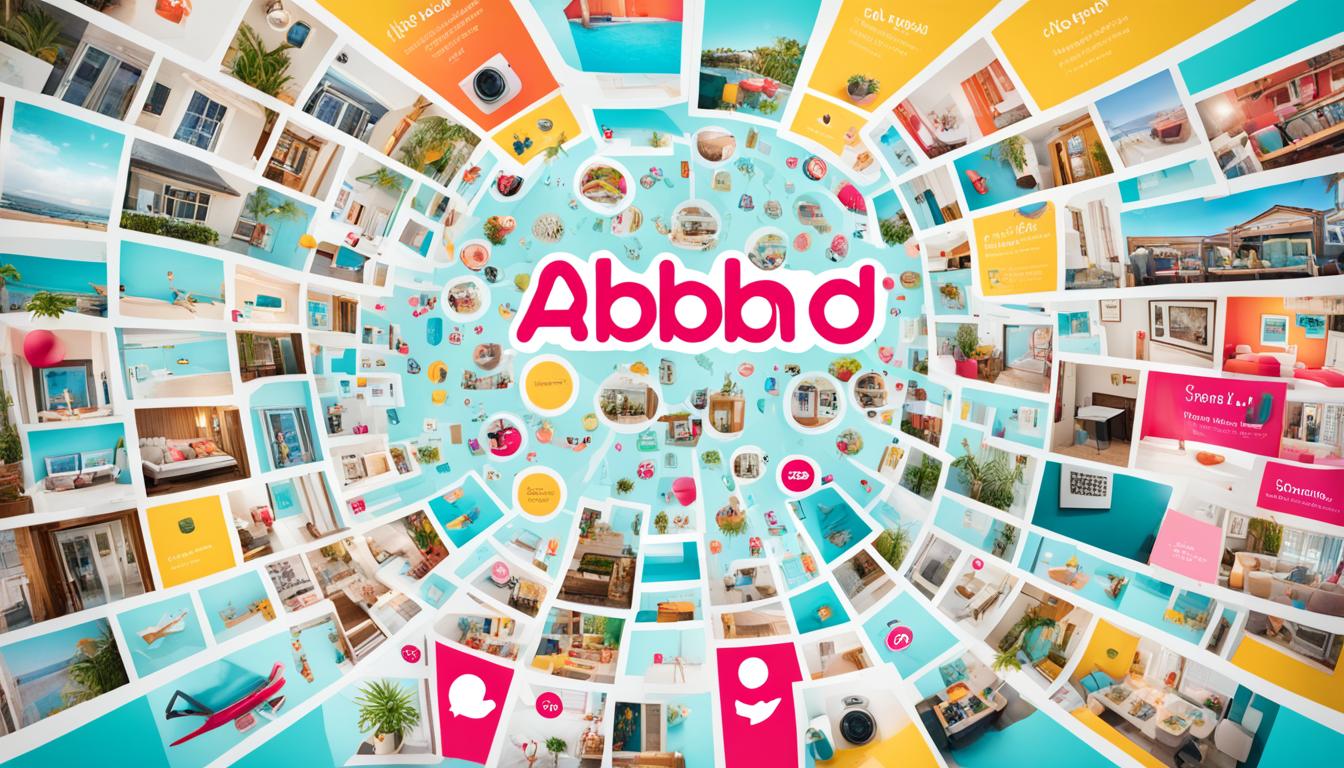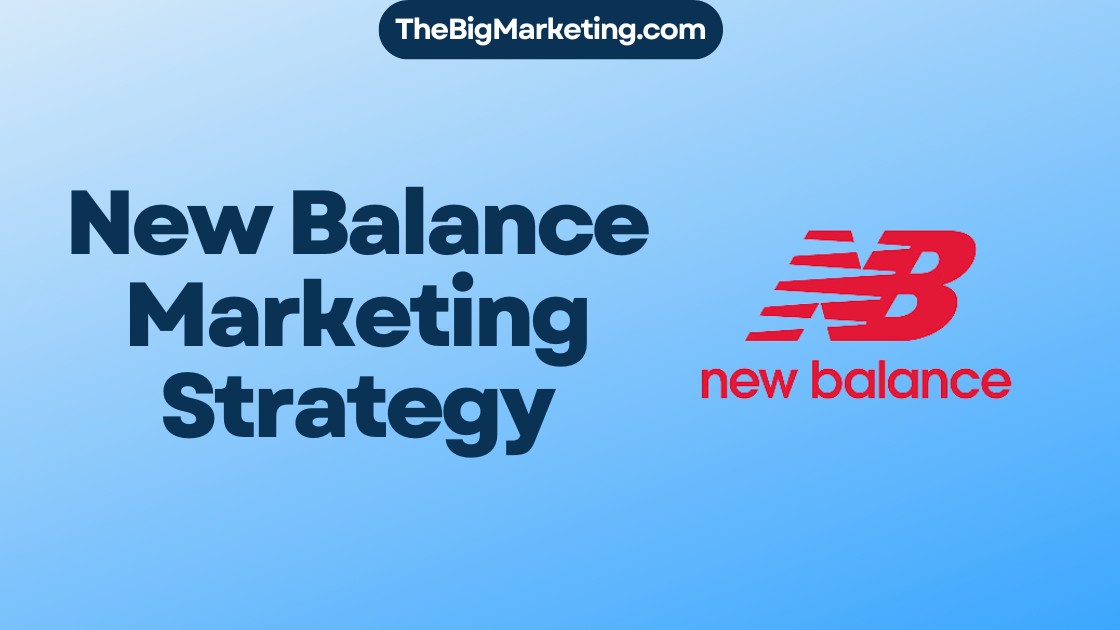Welcome to our detailed case study on VRBO’s marketing strategies for 2024. We’ll cover vacation rental marketing, digital techniques, and VRBO’s advertising strategies. Our focus is on how they enhance online visibility and boost bookings.
Since its start in 1995, VRBO has been a top vacation rental marketplace. It has grown from its simple beginnings to a go-to platform for both homeowners and travelers looking for unique stays. We will examine VRBO’s strategic moves and how they’ve stayed ahead in the industry.
In 2006, VRBO joined forces with HomeAway, another big name in vacation rentals. This move gave VRBO more resources, tech, and knowledge, helping it grow faster. We will look into how this partnership expanded VRBO’s reach and brought in more travelers and property owners.
In 2019, VRBO rebranded from HomeAway to strengthen its market presence and boost brand awareness. We’ll delve into how this rebranding aided VRBO’s success and its growth and expansion worldwide.
Next, we’ll talk about VRBO’s marketing tactics. These include updating their website and app, launching big marketing campaigns, and adding new tech to improve how users experience their service. We’ll review how VRBO’s rebranding efforts led to higher brand recognition, more market share, and increased revenue.
Finally, we’ll discuss VRBO’s unique place in the market and the issues and chances small VRBO hosts face. We aim to give small hosts tips on thriving on big booking sites and how to make their listings, pricing, and interaction with guests better.
Key Takeaways:
- VRBO is a leading vacation rental marketplace with effective marketing strategies.
- VRBO’s growth and success have been shaped by strategic decisions and adaptations.
- The acquisition by HomeAway accelerated VRBO’s growth and expanded its reach.
- Transitioning from HomeAway to VRBO strengthened the brand and increased market share.
- The execution of VRBO’s marketing strategy includes website overhauls and aggressive campaigns.
The Genesis And Growth of VRBO
VRBO started in 1995, becoming a leading name in vacation rentals. It began as a small site for homeowners to rent out properties. Now, it’s a top pick for travelers looking for unique places to stay.
VRBO’s success shows its ability to adapt and meet its users’ needs. It has always been ahead, keeping its top spot in the industry. Let’s dive into VRBO’s story and its rise to fame.
The Beginnings of VRBO
In 1995, David and Lynn Clouse launched VRBO. They were tired of limited vacation rental options. They saw the internet’s potential to link homeowners and travelers easily. They aimed to make renting vacation homes smooth, without middlemen.
Their idea struck a chord with homeowners and travelers alike. People wanted an alternative to hotels. VRBO quickly became popular, bringing more property owners and travelers together.
Catering to Changing Consumer Preferences
VRBO kept up with the evolving rental market by making smart changes. It added user-friendly features to make booking easier for both owners and travelers. Trust and reliability became its hallmarks.
VRBO made sure guests could leave reviews. This transparency built traveler confidence. It also let owners and guests chat directly, making vacation rentals more personal and smooth.
Embracing Technological Advancements
Staying relevant meant embracing new technologies for VRBO. It invested in better online booking, listing tools, and a mobile app. These upgrades made using VRBO easy on any device.
Such tech improvements made the platform cutting-edge. As digital change swept through the rental world, VRBO led by continually upgrading its technology and services for owners and travelers.
Expanding the Vacation Rental Marketplace
Over time, VRBO grew, drawing owners and travelers globally. Its commitment to going global has offered travelers diverse rental options. It allowed homeowners to reach more people.
This global network has created a vibrant community passionate about unique travels. Throughout its expansion, VRBO has focused on making vacation rentals enjoyable and memorable for everyone.
| Year | Milestone |
|---|---|
| 1995 | VRBO is launched by David and Lynn Clouse |
| Early 2000s | VRBO gains traction and becomes a trusted platform for vacation rentals |
| Mid-2000s | VRBO introduces user-friendly features and focuses on building trust |
| 2006 | VRBO is acquired by HomeAway, enabling further growth and expansion |
| 2019 | VRBO undergoes a rebranding, transitioning from HomeAway to VRBO |
| Present | VRBO continues to innovate and grow, adapting to the changing needs of homeowners and travelers |
Acquisition by HomeAway
In 2006, VRBO joined hands with HomeAway, a top name in vacation rentals. This big step changed VRBO’s future, making it a key player in the market.
This partnership offered VRBO lots of new chances. It got access to the latest technology and deep knowledge of the industry. With HomeAway, VRBO could grow faster and stronger.
One big win from joining HomeAway was becoming part of its huge global network. This made VRBO more popular worldwide. It could now reach more travelers and property owners.
Thanks to HomeAway’s network, VRBO could connect with more guests. This meant more people saw properties, leading to more bookings. The deal also brought VRBO into collaborations with other HomeAway platforms. This added more variety to what VRBO could offer.
Joining HomeAway was a defining moment for VRBO. It brought resources and a worldwide presence. This made VRBO a trusted name in vacation rentals.
| Benefits of VRBO HomeAway Acquisition |
|---|
| Access to valuable resources, technology, and expertise |
| Integration into HomeAway’s extensive global network |
| Expansion of reach and attraction of a diverse community |
| Enhanced visibility and increased bookings |
| Strategic partnerships and collaborations within the HomeAway family |
| Strengthened position in the vacation rental marketplace |
Transition From HomeAway to VRBO
In 2019, VRBO started to rebrand. This big change came from the need to bring brands together, beat competition, and grow worldwide. They wanted to stand out in the vacation rental market.
The shift to VRBO was to make the brand stronger and more known. It helped VRBO become more recognized by homeowners and travelers.
VRBO aimed to lead in the vacation rental world with this change. The rebranding used VRBO’s good name. It also matched the brand with its main goals and values.
Also, the change was a way to face an ever-growing market competition. VRBO wanted to show what makes it special. A new brand was part of the plan to keep its leading spot.
The move to VRBO also meant aiming for a global audience. It helped VRBO grow its listings worldwide. This made VRBO a top name in vacation rentals everywhere.
To sum up, VRBO’s change in 2019 was smart planning. It was all about being stronger, facing competitors, and reaching more places. This rebranding moved VRBO forward. It made the brand more known and set up for future success.
Execution of the Strategy in VRBO Vacation Rental Marketplace
VRBO completed its rebranding and quickly put its marketing plan into action. This was to establish its new image and attract people worldwide. A major move was improving VRBO’s online presence. This included their website, mobile apps, and marketing tools. These updates were key in showcasing VRBO’s new look and cementing its position as a top choice for vacation rentals.
The VRBO website saw big changes to highlight its new brand. The design focused on making it easy for users to get around and book without hassle. The website now works well on all devices and screen sizes. VRBO made these changes to cater to travelers who book on mobile devices.
Expedia, which owns VRBO, launched big marketing efforts to introduce the rebranded VRBO globally. They used different digital platforms for this, like search engine marketing, ads, and social media. Their goal was to make more people aware of VRBO and attract new travelers.
VRBO also focused on its existing customers during the rebranding. They sent out personal emails, blog posts, and social media messages. This way, they kept their current customers in the loop about the rebranding benefits. VRBO wanted to keep their loyalty and encourage them to book again.
VRBO used new tech to make booking easier and stand out from the competition. They introduced virtual tours, 3D property views, and better search options. These tech upgrades aimed to give users a better booking experience. VRBO wanted to show it’s a modern platform that meets travelers’ current wants and needs.
VRBO Marketing Campaigns
VRBO’s marketing efforts were all about getting noticed, engaging people, and getting more bookings. Expedia led these campaigns, using their digital marketing skills and worldwide presence. They targeted several channels, including:
- Search Engine Marketing: VRBO used paid ads to stand out in search engine results. They focused on the right keywords and ad content to reach people looking for vacation rentals.
- Display Advertising: VRBO put ads on popular sites and travel platforms to get seen more. These eye-catching ads showed what makes VRBO unique and prompted people to check out the site.
- Social Media Promotion: VRBO was active on social media, using platforms like Facebook, Instagram, and Twitter. They shared engaging visuals and content to connect with travelers and build their brand.
VRBO mixed a new online look, bold marketing campaigns, direct communication, and tech improvements to roll out its marketing strategy. This approach helped VRBO become a leader in the vacation rental market.
Outcomes of the VRBO Rebranding
The switch from HomeAway to VRBO led to great success. Let’s look into how the change helped VRBO thrive.
Increased Brand Recognition
VRBO’s new identity boosted their fame in the rental market. They became known as a reliable choice for both home owners and travelers. This trust brought in more people to their platform.
Growth in Market Share
VRBO aimed to grab a bigger market share with its new name. It worked. More owners and travelers now use VRBO, cementing its spot as a top vacation rental spot.
Revenue Growth
The rebrand to VRBO boosted its profit too. More visibility led to more bookings, which brought in more money. This shows the rebrand was a smart move for profit.
This image shows the VRBO logo, a symbol of its growing fame thanks to the rebrand.
The VRBO makeover also set the stage for going global. It entered new markets, broadening its reach. The move made VRBO a preferred choice for many around the world.
| Outcomes of the VRBO Rebranding | |
|---|---|
| Increased Brand Recognition | Positive impact on customer trust and loyalty |
| Growth in Market Share | Expanded market presence and attraction of more users |
| Revenue Growth | Higher bookings and increased revenue generation |
This table shows the benefits of switching to VRBO. It includes more brand recognition, a bigger share of the market, and more money made.
Navigating the Competitive Landscape
VRBO has become a big name in vacation rentals, focusing on whole houses. This strategy draws travelers looking for big, private spaces. It sets VRBO apart from other companies, giving it a strong identity.
VRBO shines when it comes to families and big groups. People who want the comfort of a full house pick VRBO. They love having lots of rooms, living spaces, and outdoor areas to enjoy with family.
VRBO makes booking easy by connecting property owners and travelers. Owners list their places, and travelers find their ideal stay. This direct talk boosts clarity and confidence, helping travelers choose wisely.
To grasp VRBO’s unique spot in the market, let’s compare it with Airbnb and Booking.com:
| Comparison | VRBO | Airbnb | Booking.com |
|---|---|---|---|
| Niche Focus | Whole-Property Rentals | Various Property Types | Wide Range of Accommodations |
| User Base | Primarily Families and Groups | Diverse User Base | Various Traveler Segments |
| Booking Process | Direct Communication with Property Owners | Instant Bookings and Host Communication | Instant Bookings and Customer Support |
| Market Reach | Global Presence | Global Presence | Global Presence |
VRBO’s focus on full-house rentals differentiates it from Airbnb and Booking.com. This niche approach effectively targets specific travelers, catering to their needs.
VRBO does well with families and groups, offering them the space and privacy they want. The platform’s model promotes clear communication, building trust and making bookings smoother.
Next, we’ll look at challenges and tips for small VRBO hosts. This will include helpful hints for success.
Challenges and Opportunities for Small VRBO Hosts
Running a small VRBO can be tough in a busy market. But, if you use clever strategies and learn the tricks of platforms like Airbnb, Booking.com, and VRBO, you can do well. It’s all about knowing how to play the game.
Listing on Multiple Platforms: Pros and Cons
Being on several platforms gets your rental more noticed. It can lead to more guests finding your place. But, deciding to do this means thinking about both the good and the bad sides.
The pros and cons of multiple listings are:
| Advantages | Disadvantages |
|---|---|
|
|
Platform-Specific Strategies
To beat your rivals and do well on VRBO, try these specific tricks:
- Optimize Your Listing:
- Highlight the unique features and amenities of your property.
- Use high-quality photos and provide a detailed description.
- Set competitive pricing based on market trends and demand.
- Encourage positive guest reviews and respond promptly to inquiries.
- Utilize VRBO’s Marketing Tools:
- Take advantage of VRBO’s sponsored listings and featured properties options to enhance the visibility of your listing.
- Opt for value-added services like instant booking or flexible cancellation policies to attract more potential guests.
- Leverage VRBO’s Community and Resources:
- Participate in VRBO forums and connect with other hosts to learn from their experiences and gain valuable insights.
- Stay updated with VRBO’s latest news, updates, and educational content to stay ahead of the curve.
Using these VRBO-specific strategies will improve your listing. This way, you’ll succeed as a small host on the platform.
Think about the good and bad of being on many platforms. Use the right strategies for VRBO. This will help small VRBO hosts tackle difficulties and make the most of the rental market.
Conclusion
This case study sheds light on VRBO’s marketing tactics planned for 2024. We looked into VRBO’s growth and how they’ve changed over time. We examined their marketing plans, the impact of their new branding, and what small hosts face on big booking sites. By using the strategies discussed, vacation rental owners can boost their online presence. This will help them get more bookings and succeed in VRBO’s competitive market.
We took a deep dive into VRBO’s marketing strategy. It gave us valuable tips for vacation rental owners to improve their online presence. By making their listings better and using strategies made for these platforms, hosts can be more visible on VRBO and other sites. This helps them draw in more guests and increase their bookings.
VRBO’s successful rebranding highlights the power of a strong brand identity. It shows how important it is to communicate this effectively to your audience. By matching their branding with what makes them unique, hosts can stand out. This attracts travelers looking for unique and memorable vacation spots.
To get more bookings, owners should also use online marketing, like social media and SEO. By creating ads aimed at the right audience and using the right keywords, hosts can show up more in search results. This attracts more guests looking for places like theirs.






